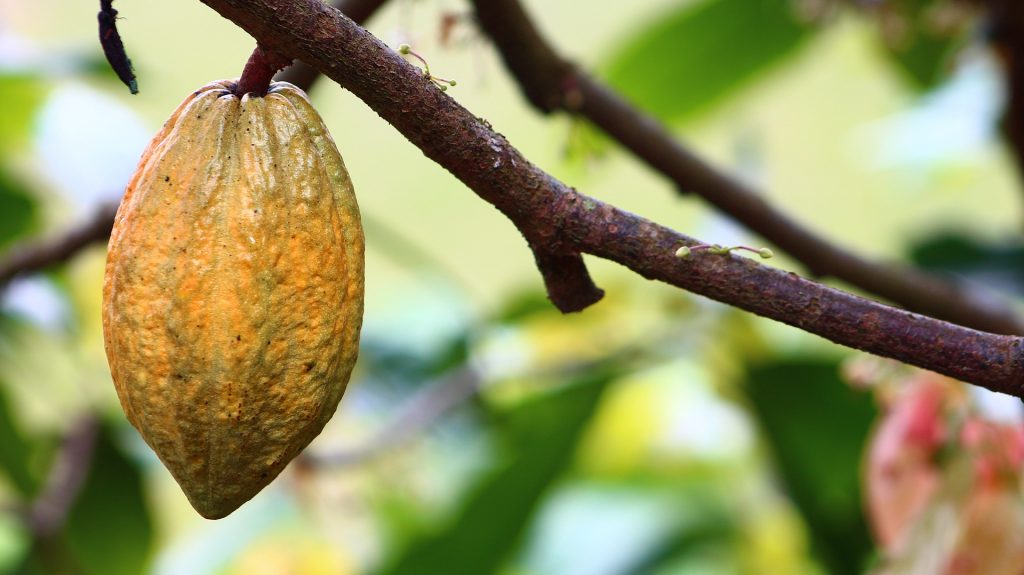 Flavonoids are polyphenolic compounds found in fruits and vegetables. Evidence suggests that consumption of polyphenols is beneficial to the health. Polyphenols are bioavailable and can be detected in human and other animal tissue, where they may exert antioxidant effects. However, in addition, their effects may also be mediated by the antioxidant activity in the gastrointestinal tract prior to any absorption. Evidence suggests that flavonoids may have anti-cancer and cardioprotective effects although much of the evidence is from epidemiological studies, and therefore proving a direct cause and effect is difficult. However, it has been demonstrated that flavonoids are able to favourable alter a number of biochemical parameters relating to both cancer and cardiovascular disease, providing compelling evidence that they may indeed be beneficial to the health. However, these parameters tend to be most favourably altered only in those at high risk of the diseases, and such effects are not as clear in healthy individuals.
Flavonoids are polyphenolic compounds found in fruits and vegetables. Evidence suggests that consumption of polyphenols is beneficial to the health. Polyphenols are bioavailable and can be detected in human and other animal tissue, where they may exert antioxidant effects. However, in addition, their effects may also be mediated by the antioxidant activity in the gastrointestinal tract prior to any absorption. Evidence suggests that flavonoids may have anti-cancer and cardioprotective effects although much of the evidence is from epidemiological studies, and therefore proving a direct cause and effect is difficult. However, it has been demonstrated that flavonoids are able to favourable alter a number of biochemical parameters relating to both cancer and cardiovascular disease, providing compelling evidence that they may indeed be beneficial to the health. However, these parameters tend to be most favourably altered only in those at high risk of the diseases, and such effects are not as clear in healthy individuals.
For example, in one study, researchers fed 34 healthy adult subjects escalating amounts of cocoa flavonols over 6 weeks. Cocoa flavonols are proanthocyanidins, large molecular weight polymers of flavan-3-ols. Flavan-3-ols are also found in green tea in high concentrations and are sometimes called catechins. In a second study, the researchers fed one group of healthy adult subjects a high cocoa flavanol diet (2000 mg of cocoa flavonols per day) or a flavonol free diet for 12 weeks. The researchers then assessed the platelet function and blood pressure of the subjects. When the authors assessed the data they found that there were no significant changes between the platelet function or the blood pressure in the different groups. This therefore suggests that in this group of individuals, there was no benefit to consuming flavonols in the parameters measured. However, that is not to say their may have been unmeasured changes that occurred. There were no adverse effects from consumption of this amount of cocoa flavonols.

A cocoa pod growing on a cocoa tree (Theobroma cacao). The flavonoids in cocoa are large molecular weight proanthocyanidins. These may have beneficial effects on platelet aggregation and blood pressure. However, this effect is seen most prominently in those at high risk of cardiovascular disease. Healthy individuals, tend to have already within range parameters for platelet aggregation and blood pressure, and are therefore less likely to see such measurable effects.
This study illustrates that in already healthy individuals, administration of flavonoids may not be beneficial. This is because it is likely that as healthy individuals, the diets of the subjects were likely already of reasonable quality. Therefore their diets may have contained other nutritional factors, including antioxidants that were able to optimise their health. The addition of significantly larger amounts of antioxidants in the form of flavonols was therefore not effective. In nutrition, there is a law of diminishing returns, whereby very unhealthy individuals respond rapidly and efficiently to even small improvements in diet, such as the addition of increased amounts of flavonoids. However, as the health of the person nears the optimal point, the improvements in the health of the individual become incrementally less. Another reason for the lack of response from the healthy subjects in this study may have been the fact that one compound was given in isolation, and antioxidants tend to work together in synergy.
Eat Well, Stay Healthy, Protect Yourself
RdB
